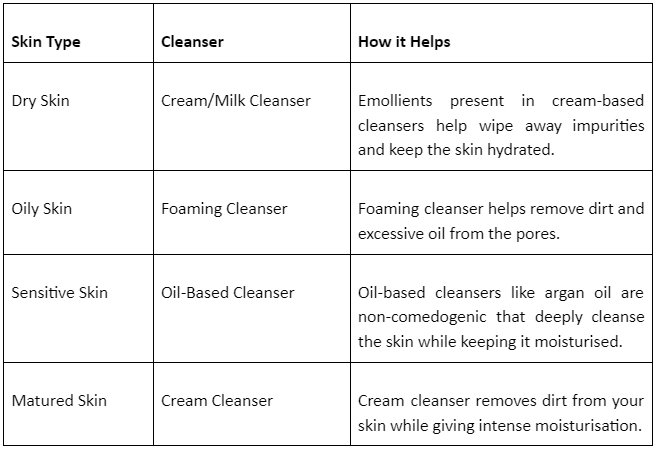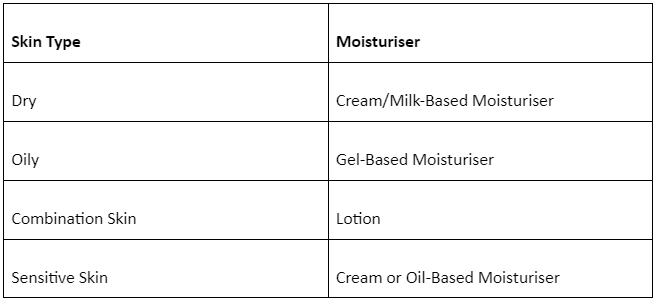A Comprehensive Guide for a Healthy Skin
You all have heard aestheticians or skincare influencers swear by a good beauty routine. So, there is no denying that beautiful and healthy skin calls for a proper skincare routine.
Healthy skin not only requires use of good skincare products, but also the steady supply of essential nutrients to revitalize dead skin cells.
As much as you try to resist the fact, the skin ages naturally, and wrinkles, fine lines, age spots, and sagging are all inevitable.
Apart from ageing, environmental factors such as excessive exposure to the sun, pollution and stress play an equal role in making skin dull and unhealthy. With this in mind, having a holistic approach is the way to go!
In this article, we are going to cover everything you need to know about healthy skin, its importance, essential nutrients required for healthy skin, and easy tips for long-lasting healthy skin. Without further ado, let’s get started!
What Exactly Is Healthy Skin?
Most people have a misconception about healthy skin; they believe pore less and flawless skin equals healthy skin. But it is not always true. Healthy skin means that the skin functions how it is supposed to, even if it grows occasional spots and natural ageing.
The skin is composed of multiple layers, with each of them serving a distinctive purpose. In order to keep your skin healthy, you need to understand how each layer works.
The epidermis is the outer layer of your skin that works as a barrier, preventing bacteria and other pollutants from entering your skin. However, it is the thinnest layer of the skin, making it vulnerable to UV rays and other environmental factors.
In order to stay protected, the epidermis relies on the dermis, the second layer of your skin for proper hydration. You can consider dermis as the moisture supply for your skin. Your skin's flexibility and strength come from the blood vessels, hair follicles, perspiration and oil glands, and nerves that are all housed here and connected by collagen and elastin.
The dermis is the sole supplier of oil or sebum to the epidermis, which helps in keeping the skin soft and supple. However, epidermis may sometimes fail to retain moisture, which leads to dry and flaky skin. On the other hand, too much oil is produced in the dermis which may travel up to the epidermis and result in breakouts.
The last layer is the hypodermis, which stores the fat, keeping you warm and protecting you from any injury. As we age, this layer loses volume, making the skin vulnerable. No product is capable of reaching and treating your hypodermis layer, which is why it is advised to have a nutrient-rich diet to protect your skin from the inside out.
Why You Should Keep Your Skin Healthy
Healthy skin protects the body from bacteria, dirt, UV rays, and foreign objects. In addition, it retains body fluids, keeping it hydrated for a longer duration so that your skin does not lose moisture or become susceptible to harmful microbes that lead to infection. Moreover, when your skin is healthy, it helps you get enough supply of Vitamin D that is essential for your body and bone health.
What Nutrients You Require for Healthy Skin
Protein
Omega-3s
Vitamins A, C and E
Eggs
Flaxseeds
Daily Routine Steps for a Healthy Skin
1. Cleanser
Cleansing your face is the most basic and essential step (that should be followed twice a day). The skin attracts various environmental pollutants, and dirt, and is exposed to the sun rigorously.
Plus, the oil production from the dermis makes it more vulnerable to breakouts, which is why deep cleansing twice a day helps in removing clogged pores, reduces the formation of acne, and prevents dullness.
Thus, based on your skin type, you need to find the right cleanser that cleans your skin without stripping moisture and essential oils. The table will help you find the ideal cleanser for your face.
2. Serum
The skin can benefit greatly from serums. You can consider serums as your skin's best friend. These elixirs help alleviate several issues, such as dark spots and wrinkles and also help to improve your skin texture as they are prepared with concentrated volumes of active ingredients.
Depending on your skin issues, you can find the right serum.
3. Moisturizer
A moisturizer's primary purpose is to moisturize and soften the skin. It also helps to stop water loss via the skin's outer layers.
Moreover, dermatologists advise applying moisturizer every day all year long. Everyone requires hydration, but depending on your skin type, your moisturizer will have a different texture. Check out the table below to find your moisturizer.
4. Sunscreen
No matter where you are, sunscreen is hands-down the most important product for healthy skin. You need to invest in sunscreen with UV-ray filters and SPF 30 or above.
The use of sunscreen on a regular basis can help delay the onset of fine lines and wrinkles, textural flaws, and changes in the way pores look. Furthermore, using sunscreen every day can also aid in preventing the development of some skin cancers.
Easy Tips for a Long-Lasting Healthy Skin
1. Consume Healthy Diet
Antioxidants found in fruits and vegetables help in skin protection from damage caused by free radicals. Smoking, pollution, and UV radiation all have the potential to produce these free radicals.
Additionally, a diet high in protein and low in bad fats and refined or processed carbohydrates can help in defying skin ageing, making your skin appear younger. So, to feel and look your best, follow a diet right in the essential nutrients. Consume a lot of fresh produce, whole grains, lean proteins, and fruits.
2. Keep Skin Moisturized
Skin moisturizers lock in moisture and keep the epidermis—the top layer of skin cells—moisturised. Humectants, present in the moisturizer attract moisture to the skin, occlusive agents keep moisture in the skin, and emollients level out the pores among skin cells, giving skin a smooth appearance.
3. Protect Skin from the Sun
Sun protection is among the most crucial steps that you should not miss at any cost. UV radiations can cause skin damage, sunburn, hyperpigmentation, and wrinkles. Using sunscreen is one of the basic and most essential steps to protect the skin from these and diseases like cancer.
The sun's drying effects also lead to the overproduction of sebum, leading to breakouts. You can choose from several sunscreens in the market. But remember, always opt for SPF 30 or above and reapply sunscreen after every 3 hours for maximum protection.
4. Indulge in a Healthy Lifestyle
Your lifestyle is the mirror reflection of your skin. If you have an unhealthy lifestyle, which includes drinking, smoking, consuming processed or fried food, or no food, it will directly reflect on your skin. Your skin will appear dull, prone to breakouts, and dehydrated.
This is why you not only need to invest in the right skincare routine but also change your lifestyle for healthy and glowing skin. Indulge in the right eating habits, and regular workouts. Also, increase your water intake and avoid smoking and excessive drinking.
5. Treat the Skin From the Inside Out
As discussed above you cannot treat the hypodermis layers with beauty or skincare products. You need to treat it from the inside out to get the healthy skin you yearn for.
The best way to do so is by consuming collagen-building foods such as nuts, seeds, legumes, lean meats, fish, and egg whites to keep your skin smooth and firm. If your skin is healthy from the inside, it will surely reflect outside, so you will not be needing any additional products to get the radiating glow. Your skin will be healthy and beautiful naturally.
6. Manage Stress
Stress can lead to acne outbreaks and cause other skin issues. Take efforts to control your stress to promote healthy skin and a positive state of mind.
Get enough sleep, establish realistic boundaries, reduce your to-do list, work out regularly (at least thrice a week) and carve off time for your favorite activities. The outcomes can be more pleasing than you anticipate.
Anti-Ageing Treatment by You By Sia
You By Sia offers different procedures for anti-ageing that help promote the formation of collagen and remove any wrinkles or fine lines.
1. Laser Treatment
The laser treatment procedure promotes the production of new collagen and elastin. The visible signs of ageing are reduced by laser treatments without the need for needles, anesthesia, or other risk-based techniques.
2. THERMIQUE treatment
THERMIQUE treatments channels thermo-mechanical energy into your skin while simultaneously promoting the development of new collagen.
Conclusion
Consuming a diet high in fruits and vegetables, avoiding processed foods, and drinking enough water are all simple strategies to maintain healthy skin from the inside and slow down the ageing process.
And to get the natural glow, don’t forget to protect the outer layer of your skin—cleanse, moisturize, and protect using the right SPF.
FAQs
What are the daily regimen steps for healthy skin?
Your skincare regimen should consist of:
Cleansing — Washing your face twice a day.
Moisturizing — Hydrating and nourishing the skin twice a day.
Protecting – Protecting your skin from harmful UV radiations using SPF.
You can also add a face serum based on the type of skin problem.
How can season change impact skin health?
As the season changes, you can begin to see certain changes in your skin, like dryness and irritation in winters and excessive oiliness in summers.





